What makes a great president? This is a topic of considerable debate, intricately woven into the fabric of political science and public opinion. At its core, the presidency is a position of immense responsibility and power. It Requires a harmonious blend of personal attributes, leadership skills, and a steadfast commitment to the nation’s welfare.
A good president must not only steer the country through challenges and opportunities but also inspire and unite a diverse populace. This role demands a multifaceted approach, combining visionary leadership, ethical integrity, and effective communication with a deep understanding of the nation’s social, economic, and political landscapes.
Key Takeaways:
- Visionary leadership and the ability to prepare for future challenges are crucial for a good president.
- Integrity and adherence to high ethical standards ensure transparency and fairness in governance.
- Effective communication and a deep respect for democratic principles and institutions are fundamental for successful presidential leadership
Table of Contents
- What Makes a Good President?
- Characteristics Voters Look For in a President
- Top 5 Presidents
- Abraham Lincoln (16th President, 1861-1865):
- Franklin D. Roosevelt (32nd President, 1933-1945):
- George Washington (1st President, 1789-1797):
- Thomas Jefferson (3rd President, 1801-1809):
- Theodore Roosevelt (26th President, 1901-1909):
- Why is Crisis Management Important?
- The Importance of Recognizing Leadership Traits in Presidents
- Crisis Management Skills
- Compare Joe Biden to Franklin Roosevelt. Crises Management and Response.
- Qualities For President
- Joe Biden as Vice President (2009-2017):
- The Great Recession Context
- Joe Biden's Vice Presidency (2009-2017)
- Comparing Trump to Both Biden and Roosevelt
- Respect for Democratic Principles and Institutions:
- What Makes a Great President: The True Test
- Understanding What Makes a President Great
- Frequently Asked Questions
What Makes a Good President?
Foremost among the qualities of a good president is visionary leadership. This involves not only setting a strategic direction for the country but also having the foresight to anticipate and prepare for future challenges.
A president must craft policies that address current issues while laying the groundwork for long-term prosperity and stability. Equally important is integrity; a president must adhere to the highest ethical standards, ensuring transparency, accountability, and fairness in governance.
What Makes A President Great?
This moral compass builds trust and respect both domestically and on the international stage. Additionally, effective communication is pivotal. These qualities, combined with a profound respect for democratic principles and institutions, form the cornerstone of what makes a successful president.
Characteristics Voters Look For in a President
Vision and Leadership:
A good president must have a clear and compelling vision for the country. This vision should be forward-thinking, encompassing both immediate challenges and long-term goals. Leadership requires the ability to inspire and mobilize people toward a common purpose, making the president’s vision resonate with the diverse populace.
Integrity and Ethics:
Integrity is foundational. A president must be honest, transparent, and accountable. Ethical leadership fosters trust and respect, both domestically and internationally. This includes adhering to the rule of law, avoiding conflicts of interest, and maintaining high moral standards in personal and professional conduct.
Intellectual Capacity and Judgment:
The role demands a sharp intellect to grasp complex issues, from economic policies to international relations. Good judgment is crucial, as presidents frequently make decisions with far-reaching consequences under uncertainty and pressure.
Communication Skills:
Effective communication is a hallmark of good presidencies. This involves not only the ability to speak eloquently but also to listen actively. A president must communicate policies and ideas clearly to the public and be capable of persuasive dialogue with political adversaries and allies alike.
Emotional Intelligence:
A president needs a high degree of emotional intelligence, which includes empathy, self-awareness, and the ability to manage emotions. This helps in understanding the needs and concerns of citizens, building relationships with world leaders, and leading a diverse team.
Decision-making Ability:
Presidents are required to make numerous decisions daily, ranging from domestic policy to national security. Effective decision-making involves analyzing information, consulting experts, considering various viewpoints, and anticipating the impacts of each decision.
Political Skill:
Understanding the political landscape and being able to navigate it effectively is essential. This includes the ability to work with different branches of government, build coalitions, and negotiate with political opponents.
Crisis Management:
A president must be capable of handling crises effectively. This requires calmness under pressure, quick thinking, and decisive action. The ability to communicate clearly and reassuringly during a crisis is also vital.
Adaptability and Learning:
The world is constantly changing, and a good president must be adaptable, open to new ideas, and willing to learn from mistakes. This flexibility allows for adjusting policies and strategies as circumstances evolve.
Respect for Democratic Principles and Institutions:
A president must uphold democratic values and institutions, respecting the separation of powers, the rule of law, and the rights of minorities. This includes a commitment to free and fair elections and a willingness to relinquish power peacefully when required.
Top 5 Presidents
In the history of the United States, several presidents have been historically recognized for exhibiting qualities of great leadership. Here are the top five U.S. presidents who are often hailed for their impactful presidencies, based on various criteria including visionary leadership, crisis management, and lasting impact:
Abraham Lincoln (16th President, 1861-1865):
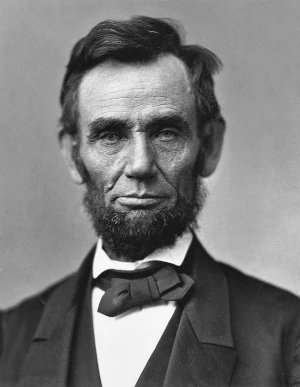
Lincoln is renowned for leading the nation through its Civil War and working towards the abolition of slavery with the Emancipation Proclamation. His leadership in preserving the Union and promoting equal rights left an indelible mark on the nation’s history.
Franklin D. Roosevelt (32nd President, 1933-1945):
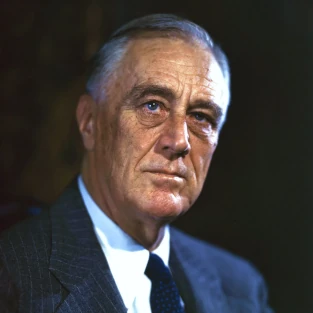
Roosevelt is credited with leading the United States through the Great Depression and World War II. His New Deal programs greatly expanded the role of the federal government in American life, and his leadership during WWII was critical in the Allies’ victory.
George Washington (1st President, 1789-1797):
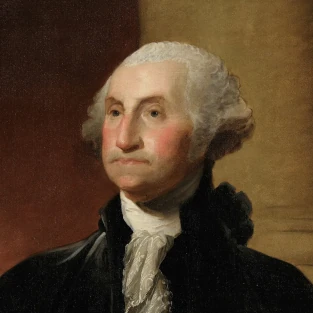
As the first President of the United States, Washington set many key precedents for the office. His leadership in the early years of the nation was crucial in establishing a stable and enduring federal government.
Thomas Jefferson (3rd President, 1801-1809):
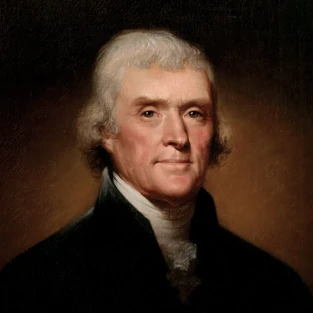
Jefferson, a principal author of the Declaration of Independence, is celebrated for his promotion of the ideals of democracy and republicanism. His presidency is notable for the Louisiana Purchase, which significantly expanded U.S. territory.
Theodore Roosevelt (26th President, 1901-1909):
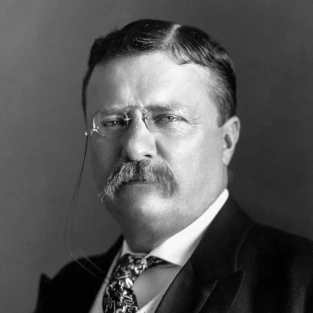
Roosevelt is known for his progressive policies, strong leadership style, and conservation efforts. His presidency saw significant economic reforms, the building of the Panama Canal, and the establishment of national parks and forests.
These presidents are often revered for their visionary policies, effective leadership during crises, commitment to principles, and significant contributions to shaping the United States. Each of these leaders left a lasting legacy that impacted the country’s course and is remembered as a symbol of exceptional presidential leadership.
Why is Crisis Management Important?
Crisis management is a critical aspect of leadership and organizational strategy, vital for mitigating the impact of unexpected and potentially devastating events. Its importance can be understood through several key factors:
Protecting Public Safety and Welfare: In the face of crises such as natural disasters, public health emergencies, or security threats, effective crisis management is crucial for protecting the lives and well-being of people. Quick and efficient responses can minimize harm and prevent situations from escalating.
Economic Stability: Crises often pose significant risks to economic stability. Effective crisis management helps minimize financial losses, stabilize markets, and safeguard jobs and businesses. By managing crises effectively, leaders can mitigate economic disruptions and facilitate quicker recovery.
The Importance of Recognizing Leadership Traits in Presidents
Maintaining Trust and Reputation: How an organization or government handles a crisis significantly impacts its reputation and the trust of stakeholders. Effective management can enhance credibility and public confidence, whereas poor management can lead to a loss of trust, which can be difficult to rebuild.
Reducing Uncertainty and Chaos: Crises are characterized by uncertainty and chaos. Effective crisis management involves clear communication, swift decision-making, and coordinated actions, which help reduce confusion and maintain order. This is essential for ensuring that accurate information is disseminated and that stakeholders know how to respond.
Learning and Adaptation: Successfully managing a crisis provides valuable lessons. It offers insights into vulnerabilities and highlights areas for improvement in policies, procedures, and preparedness. This learning process is crucial for adapting and enhancing resilience against future crises.
Global Implications: In an interconnected world, crises in one area can have global repercussions. Effective crisis management can contain issues locally and prevent them from escalating into larger regional or global problems.
Crisis management is important because it directly impacts public safety, economic health, trust in institutions, and the ability to effectively navigate through and learn from adverse situations. It’s an essential skill for leaders and organizations in an increasingly complex and unpredictable world.
Crisis Management Skills
Effective crisis management requires a blend of skills and abilities to navigate through and mitigate the impact of unforeseen and challenging situations. Here are the top 10 skills crucial for effective crisis management:
Leadership: Strong leadership is essential in crises. It involves making decisive decisions, providing clear direction, and motivating and guiding teams through challenging times.
Communication: Effective communication skills are crucial. This includes the ability to convey clear, concise, and accurate information to all stakeholders, and to do so calmly and reassuringly.
Problem-Solving: The ability to quickly analyze situations, identify problems, and develop effective solutions is critical during a crisis. This often involves innovative thinking to address unique challenges.
The Benefits of Knowing Key Presidential Qualities
Adaptability and Flexibility: Crises are unpredictable, and plans may need to be adjusted rapidly. Being adaptable and flexible allows for quick pivoting as situations evolve.
Emotional Intelligence: High emotional intelligence helps in managing one’s own emotions and understanding and empathizing with the emotions of others, which is vital in high-pressure situations.
Risk Assessment and Management: The ability to assess risks effectively and manage them is key. This involves understanding potential threats and their impacts and developing strategies to mitigate these risks.
Decision Making: In a crisis, timely and effective decision-making is critical. This skill involves analyzing information and making informed choices quickly, often under pressure.
Teamwork and Collaboration: Effective crisis management often requires collaboration across different teams and departments, or even with external agencies. The ability to work well with others, leveraging collective strengths, is essential.
Resilience and Stress Management: The ability to remain calm under pressure and bounce back from setbacks is crucial. Managing stress effectively ensures that one remains clear-headed and focused.
Strategic Planning and Foresight: Being able to develop and implement strategic plans is important. This includes having the foresight to anticipate and prepare for potential crises, minimizing their impact.
These skills are not only critical for individuals in leadership roles but are also valuable for teams and organizations in building a robust crisis management capability. Developing and honing these skills can significantly enhance the ability to navigate through and recover from crises effectively.
Compare Joe Biden to Franklin Roosevelt. Crises Management and Response.
Qualities of a President
Comparing President Joe Biden to President Franklin D. Roosevelt (FDR) in terms of their handling of crises and responses involves looking at different historical contexts, types of crises, and the individual approaches of each president. Here’s a comparative analysis:
Context and Crises:
- Franklin D. Roosevelt: FDR took office in 1933 during the Great Depression, the worst economic crisis in U.S. history, followed later by World War II. The Great Depression was characterized by massive unemployment, bank failures, and widespread poverty. WWII, starting for the U.S. in 1941, was a global conflict requiring immense military and economic mobilization.
- Joe Biden: Biden assumed the presidency in 2021, during the COVID-19 pandemic, which caused a global health crisis and economic disruption. Additionally, Biden faced challenges including political polarization, climate change, and issues related to racial justice and immigration.
Response Strategies:
- FDR’s New Deal: FDR’s response to the Great Depression was the New Deal, a series of programs, public work projects, financial reforms, and regulations. These included the Civilian Conservation Corps, the Works Progress Administration, and the Social Security Act. FDR’s leadership during WWII involved a massive military mobilization and the Lend-Lease program to support Allied nations.
- Biden’s Policies: Biden’s response to the COVID-19 pandemic included a focus on vaccine distribution and economic stimulus packages, notably the American Rescue Plan. His administration also focused on infrastructure (the Infrastructure Investment and Jobs Act) and addressed climate change initiatives and social justice issues.
Leadership Style and Challenges:
- FDR: FDR was known for his strong, direct leadership style, his ability to communicate effectively (famously through his “Fireside Chats”), and his willingness to experiment with different solutions to pull the country out of the Depression. He faced challenges including opposition from the Supreme Court and some business sectors.
- Biden: Biden’s leadership has been characterized by an emphasis on unity and restoring normalcy. He has faced significant challenges in navigating a deeply divided Congress and a polarized political environment, making it difficult to enact large-scale legislative initiatives.
Impact and Public Perception:
- FDR: FDR’s presidency is often credited with reshaping the American government’s role in the economy and society. His leadership during WWII is widely praised. However, some of his policies were controversial, and his attempt to “pack” the Supreme Court was met with significant opposition.
- Biden: The full impact of Biden’s presidency is still unfolding. Early in his term, he faced challenges related to vaccine hesitancy and distribution, economic recovery, and managing a sharply divided political landscape. His infrastructure bill has been a significant legislative achievement.
While both presidents faced unprecedented national crises, the nature of these crises and the historical contexts were quite different. FDR’s presidency is often defined by his transformative New Deal policies and wartime leadership.
Biden’s term has been marked by efforts to manage a public health crisis and its economic fallout, along with addressing contemporary issues like climate change and social justice. The long-term impact of Biden’s presidency will continue to evolve and be assessed in the context of these challenges.
Qualities For President
When comparing Joe Biden’s tenure as both Vice President and President to Franklin D. Roosevelt’s presidency, we need to consider the different roles, contexts, and crises each faced. Biden’s experience as Vice President under President Barack Obama adds dimension to his political career and leadership style.
Joe Biden as Vice President (2009-2017):
- Crisis Management: Biden was Vice President during the Great Recession, the worst economic crisis since the Great Depression. The Obama-Biden administration responded with the American Recovery and Reinvestment Act of 2009, aimed at saving and creating jobs, spurring economic activity, and investing in long-term growth.
- Healthcare Reform: A significant achievement during Biden’s vice presidency was the passage of the Affordable Care Act (ACA), which aimed to expand healthcare coverage, reduce costs, and improve healthcare system efficiencies.
- Foreign Policy and Other Issues: Biden played a key role in foreign policy, particularly concerning Iraq and Afghanistan. He was also involved in policy-making on issues like climate change, gun control, and judicial appointments.
Franklin D. Roosevelt as President (1933-1945):
- Great Depression and New Deal: FDR’s response to the economic calamity was the New Deal, a comprehensive series of economic programs and reforms. This period saw the creation of Social Security, unemployment insurance, and various regulatory bodies.
- World War II Leadership: FDR’s presidency during WWII required adept handling of both military strategy and domestic mobilization for the war effort. His leadership is credited with playing a crucial role in the Allied victory.
Comparative Analysis:
Role and Authority: As Vice President, Biden’s role was largely advisory and supportive of President Obama’s agenda, whereas FDR had the full executive authority as President. The scope of influence and decision-making capacity is significantly different between a Vice President and a President.
Crisis Response: Both FDR and Biden (as VP and President) dealt with severe economic downturns. FDR’s response was more transformative in scope (the New Deal), reflecting the more severe nature of the Great Depression compared to the Great Recession. Biden’s role in the Obama administration’s response to the Great Recession and his handling of the COVID-19 pandemic as President showed a focus on economic stimulus and public health measures.
Legislative Achievements: FDR’s tenure saw groundbreaking legislation that reshaped the American social and economic landscape. Biden’s time as Vice President was marked by significant achievements like the ACA, and his presidency has seen major initiatives like the American Rescue Plan and infrastructure investment.
Context and Challenges: FDR governed during a time of existential crises for the nation and the world. Biden’s challenges, though significant, are different in scope and nature, including dealing with a global pandemic, climate change, and deep political polarization.
While both leaders faced monumental challenges, the nature and context of these challenges were distinct. FDR’s presidency is often viewed as transformative, reshaping American government and society. Biden’s career, encompassing his vice presidency and presidency, has been marked by significant legislative achievements and responses to major crises, although the long-term impacts of his presidency are still being determined.
The Great Recession Context
A significant global economic crisis began in late 2007 and lasted until around 2009, with some of its effects lingering for years afterward. It was the most severe economic downturn since the Great Depression of the 1930s. The context and causes of the Great Recession are multifaceted and involve a combination of complex factors:
Housing Market Collapse: A key factor was the burst of the housing bubble in the U.S. After years of rising housing prices, fueled by low interest rates and easy credit, the market began to decline in 2006-2007. This decline led to a sharp fall in house prices and a significant increase in mortgage defaults and foreclosures.
Financial System Vulnerabilities: The crisis was exacerbated by the financial system’s exposure to mortgage-backed securities and other complex financial products. These products, tied to the housing market, lost significant value, leading to substantial losses for financial institutions. The crisis of confidence in the financial sector led to the collapse or near-collapse of several major banks and financial institutions.
Lehman Brothers Collapse: A pivotal moment in the Great Recession was the bankruptcy of Lehman Brothers in September 2008, one of the largest investment banks in the U.S. This event triggered a global financial panic, leading to a severe tightening of credit markets and a dramatic drop in consumer and business confidence.
Global Impact: While it began in the United States, the Great Recession quickly spread to other economies worldwide, leading to a global economic downturn. International trade plummeted, and unemployment rates surged across many nations.
Government Responses: Governments and central banks around the world responded with a range of policies to stabilize the financial system and stimulate economic growth. These included bank bailouts, fiscal stimulus packages, and monetary policy actions like lowering interest rates and quantitative easing.
Joe Biden’s Vice Presidency (2009-2017)
The U.S. was recovering from The Great Recession crisis. The Obama administration’s response included the American Recovery and Reinvestment Act of 2009, aimed at stimulating the economy through infrastructure spending, tax cuts, and expanded unemployment benefits.
The administration also implemented financial reforms through the Dodd-Frank Wall Street Reform and Consumer Protection Act to strengthen the financial system and prevent future crises.
The Great Recession had a profound impact on economies and societies worldwide, leading to widespread job losses, home foreclosures, and a significant increase in public debt. Its effects influenced economic policy and financial regulation for years to come and played a significant role in the political and economic landscape during Biden’s tenure as Vice President.
Comparing Trump to Both Biden and Roosevelt
Comparing Donald Trump’s presidency to those of Joe Biden and Franklin D. Roosevelt (FDR) involves analyzing different historical contexts, leadership styles, and responses to the challenges they faced.
Donald Trump (45th President, 2017-2021):
- Crisis Management: Trump’s presidency was marked by significant events, including the COVID-19 pandemic. His administration’s response to the pandemic was a central aspect of his presidency, facing criticism for downplaying the virus’s severity and for inconsistencies in public health messaging. And suggesting people inject Bleech.
- Economic Policies: Before the pandemic, Trump’s economic policies focused on tax cuts (Tax Cuts and Jobs Act of 2017), deregulation, and trade negotiations, including a trade war with China.
- Foreign Policy: Trump’s foreign policy was characterized by a departure from traditional alliances, renegotiation of trade deals, and direct engagement with North Korea.
- Domestic Issues: Trump’s domestic policies included efforts to repeal the Affordable Care Act, immigration reforms, and the appointment of three Supreme Court justices.
- Leadership Style: Trump’s leadership was often marked by a direct and confrontational style, extensive use of social media for communication, and frequent clashes with the media.
Joe Biden (46th President, 2021-present) and Vice President (2009-2017):
- Crisis Response: As President, Biden’s handling of the COVID-19 pandemic, with a focus on vaccine distribution and economic recovery, has been a significant aspect of his presidency. His approach contrasted with Trump’s, emphasizing scientific guidance and federal coordination.
- Economic and Domestic Policies: Biden’s presidency has seen major legislative initiatives like the American Rescue Plan and infrastructure investment. As Vice President, he was involved in the Obama administration’s response to the Great Recession.
- Foreign Policy: Biden’s foreign policy has aimed at restoring traditional alliances and re-engaging with international organizations like the WHO and the Paris Climate Agreement.
Franklin D. Roosevelt (32nd President, 1933-1945):
- Crisis Management: FDR’s presidency during the Great Depression and World War II involved transformative economic policies (the New Deal) and significant wartime leadership.
- Economic and Domestic Policies: The New Deal included social welfare programs, financial reforms, and infrastructure projects, fundamentally reshaping the role of the federal government.
- Foreign Policy: Roosevelt’s foreign policy before WWII was characterized by the Good Neighbor policy towards Latin America and initial isolationism, later shifting to support for Allies through Lend-Lease and eventual direct involvement in WWII.
Comparative Analysis:
- Crisis Response: All three faced significant crises (Great Depression, Great Recession, COVID-19). FDR and Biden are noted for more interventionist government responses, whereas Trump’s approach was marked by a preference for state-led responses and initial minimization of the crisis.
- Economic Policy: FDR’s and Biden’s policies included major federal spending and intervention, while Trump focused on tax cuts and deregulation.
- Leadership Style: FDR was known for his fireside chats and unifying approach; Biden emphasized unity and a return to traditional governance; Trump’s style was more combative and unconventional, often bypassing traditional media channels.
- Foreign Policy: FDR’s and Biden’s foreign policies leaned towards international cooperation, while Trump adopted a more unilateral and transactional approach.
The presidencies of Trump, Biden, and FDR reflect different approaches to leadership, policy-making, and crisis management, shaped by the unique challenges and contexts of their respective times.
Respect for Democratic Principles and Institutions:
Rating presidents on their respect for democratic principles and institutions involves assessing how they adhered to constitutional norms, the rule of law, the separation of powers, and their commitment to democratic processes.
It’s important to approach this with the understanding that such assessments can be subjective and may vary based on perspective and political ideology. Here’s an analysis based on available historical and contemporary perspectives:
Franklin D. Roosevelt (FDR):
FDR’s respect for democratic institutions is generally viewed positively, especially in terms of his leadership during a time of significant crisis.
However, his attempt to “pack” the Supreme Court in 1937, increased the number of justices to gain favorable rulings for his New Deal legislation. This was controversial and seen by critics as an overreach of executive power.
Despite this, his leadership during WWII and the economic crisis of the Great Depression is often seen as crucial in preserving the nation’s democratic framework during difficult times.
Joe Biden:
Biden has generally shown respect for democratic principles and institutions. His administration has emphasized the importance of constitutional norms, the rule of law, and the integrity of democratic processes.
He has respected the separation of powers, worked through legislative processes to pass bills, and upheld the norms of democratic governance. His rhetoric has often focused on the importance of democracy, both domestically and internationally.
Donald Trump:
Trump’s presidency raised significant debate and controversy regarding respect for democratic principles and institutions.
His challenges to the legitimacy of the 2020 election results, culminating in the events of January 6, 2021, at the U.S. Capitol, were widely viewed as undermining democratic norms.
Additionally, his frequent conflicts with the judiciary and the press, as well as his use of executive orders and pardons, were often sources of contention.
These actions led to a divided opinion, with supporters viewing them as a challenge to a stagnant political status quo, while critics saw them as a disregard for democratic norms. That and 91 Felony Criminal charges and Liability for sexual assault.
It’s important to recognize that these assessments are based on historical perspectives, which can evolve. The evaluation of respect for democratic principles and institutions, particularly for recent or current presidents, can be influenced by ongoing political and social developments.
Global Perspective:
In an increasingly interconnected world, a good president must understand global issues and dynamics. This involves maintaining strong international relationships, understanding global economic and environmental challenges, and representing the nation effectively on the world stage.
While these presidents faced unprecedented national crises, the nature of these crises and the historical contexts were quite different. FDR’s presidency is often defined by his transformative New Deal policies and wartime leadership.
Biden’s term has been marked by efforts to manage a public health crisis and its economic fallout, along with addressing contemporary issues like climate change and social justice. The long-term impact of Biden’s presidency will continue to evolve and be assessed in the context of these challenges.
What Makes a Great President: The True Test
It is essential to contrast the distinct demands of presidential leadership in times of peace and prosperity against those in periods of national crises. While steady, forward-thinking leadership is crucial in all circumstances, the true mettle of a president is often most discernibly tested during crises. Biden like Roosevelt has experience where it matters most during times of extreme crises
These challenging moments demand not only the consistent qualities of good governance but also a heightened level of resilience, decisiveness, and the ability to instill hope and direction in the face of adversity.
It is important to reflect on how the principles of effective leadership adapt and are intensified when a nation navigates through turbulent waters, highlighting the dynamic and multifaceted nature of presidential leadership
Understanding What Makes a President Great
The presidency is a role of immense responsibility, requiring a combination of personal attributes, skills, and a deep commitment to the welfare of the nation and its people. While the perfect president may be ideal, striving toward these qualities can lead to effective and respected leadership. One where the needs of a nation and its people are better off than when they took office.
Frequently Asked Questions
What qualities make a great president?
Visionary leadership, integrity, effective communication, crisis management, and respect for democratic principles are key qualities.
Why is visionary leadership important for a president?
It involves setting a strategic direction for the country, anticipating future challenges, and inspiring the populace towards common goals.
How does integrity impact presidential leadership?
Integrity ensures transparency, accountability, and fairness in governance, fostering trust and respect both domestically and internationally.
What role does effective communication play in a presidency?
Effective communication involves clearly conveying policies and ideas, actively listening to the public, and engaging in persuasive dialogue with political allies and adversaries.
Why is crisis management crucial for a president?
Crisis management requires calmness under pressure, quick decision-making, and the ability to reassure the public during emergencies.
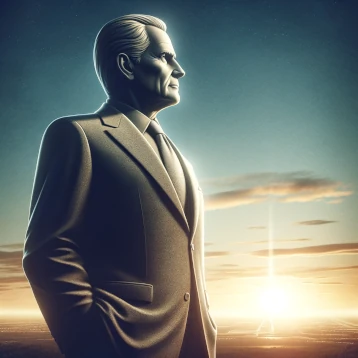
It’s fantastic that you are getting ideas from this paragraph
as well as from our discussion made here.